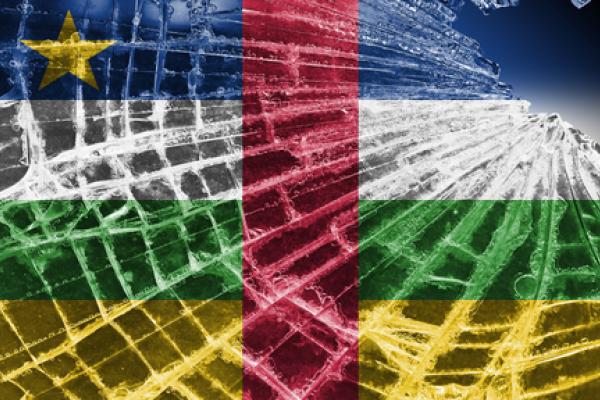This weekend we’ll commemorate the too-short life and great work of Dr. Martin Luther King Jr. While we rightly celebrate his life dedicated to advancing equality for all, too often we overlook his call to peacemaking. This year, in light of conflicts in Syria, South Sudan, and an often-overlooked war in Central African Republic, we should remember his words.
In his 1967 speech, “Beyond Vietnam — A Time to Break Silence,” King opposed the violence, saying:
"To me the relationship of this ministry [of Jesus Christ] to the making of peace is so obvious that I sometimes marvel at those who ask me why I'm speaking against the war. Could it be that they do not know that the good news was meant for all men — for Communist and capitalist, for their children and ours, for black and for white, for revolutionary and conservative?"
Those aware of our long history at Sojourners know that we have always been committed to peace, to opposing unjust wars and finding nonviolent solutions wherever possible. And in all the work we do, we aim to speak out for the least of these, the poorest and most vulnerable.
And as I have followed the reports coming from Central African Republic (CAR), I am heartbroken over the suffering of a people the world seems to have forgotten. Since the Seleka — or alliance — rebellion overturned the government in March 2013, there has been widespread insecurity and chaos. The UN Office for the Coordination of Humanitarian Affairs (OCHA) has called the situation a “mega-crisis.”
Though the rebel movement began as a coalition of 5,000 fighters from a few rebel groups, it is now thought to have increased to 20,000, and there are credible reports that as many as 3,500 child soldiers have been recruited.
Although the Seleka was officially disbanded in September, human rights groups such as Amnesty International and Human Rights Watch have documented arbitrary killings, looting, pillaging, and rape on a large scale.
Despite more than 50 years of peaceful Muslim-Christian coexistence, the violence and instability have displaced almost 400,000 civilians who are fleeing their homes and towns and banding together with others who are like them — Muslim with Muslim, Christian with Christian. And it is the civilians — many families and children — who bear the brunt on either side.
The violence against civilians has gotten worse: on Dec. 5, 500 people were killed in an attack on the capital city, and experts are assuming large-scale atrocities and very likely war crimes, but nothing is being documented. There have been reports of children being beheaded, serious human rights abuses, and potential ethnic and religious cleansing.
But despite the religious violence and the fear that is gripping CAR right now, there is reason for hope. Women and men of faith are crossing religious lines to promote peace and stability within the country. There have been spontaneous youth protests denouncing the violence and hatred that is rocking their country.
According to Mike Jobbins, program manager for Africa at Search for Common Ground who recently testified before Congress on this issue, “Every day, ordinary Central Africans wake up wanting to do something to stop this violence. Now that the president has stepped aside, they have a window of opportunity. Pastors, priests, and imams are working together to reconcile their communities. The answers are there with young people and religious leaders, but they need support."
So what can we do? And why should we care?
CAR does not have in-demand exports. Even before the crisis began, CAR ranked 180th out of 187 on the UN’s Human Development index. There is no economic or political reason why the suffering in CAR should capture our hearts.
But that is why, as people of faith and followers of Christ, we should care. Jesus said, “whenever you failed to help any of my people, no matter how unimportant they seemed, you failed to do it for me.” (Matthew 25:45, CEV). It violates our deepest moral principles when we fail to speak out for the common good for all — not just our particular groups, tribes, or sects.
The example of our sisters and brothers working for peace in CAR should inspire us to advocate for a resolution to this crisis. We should contact our members of Congress and ask that our embassy be reopened — not only as a sign of our support, but because its closure impedes the work of peace in the country. And we should remind our elected representatives that our best values tell us that children — no matter what country they’re from — should be protected from war, not recruited to fight it.
So this weekend, in the spirit of Dr. King, let us remember that the gospel of peace is for all. And let us remember our brothers and sisters in Central African Republic — it is time to break silence.
Got something to say about what you're reading? We value your feedback!
